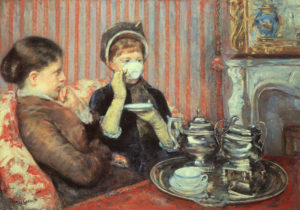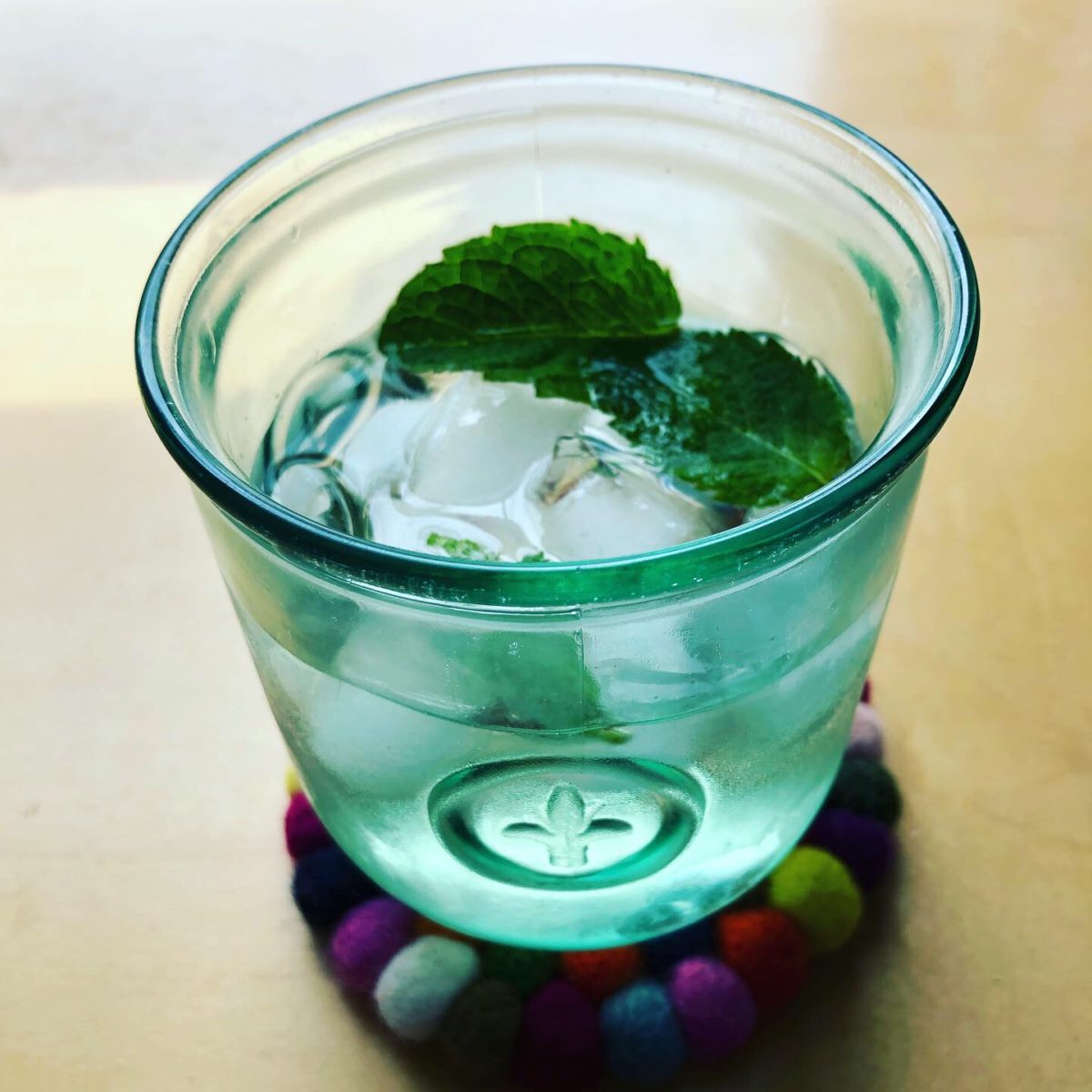Female-specific health benefits of tea

One of the most encouraging outcomes of the vast volume of research studies on tea is the consistent accumulation of evidence of its positive impacts on key areas of women’s quality of life and protection from dangerous ailments. These are most marked for postmenopausal older age groups.
The four main areas of tea’s benefits for women are ones where the weight of evidence from studies of large groups over multiple years is compelling even where it does not pass the necessary rigor and methodological demands for scientific proof:
- Mental sharpness: “cognitive decline” is lower among female tea drinkers than for males and non-tea drinkers.
- Bone health: tea is a marked preventive against the osteoporosis and bone fractures that are a high risk for women as they age.
- Breast cancer: scattered but growing evidence that tea is effective at the molecular level in attacking the cells that mark the second largest cause of cancer deaths.
- Ovarian cancer: detailed studies show the preventive effects of tea’s “magic molecule”, EGCG, on cancer cells causing a disease that generates around 22 thousand new cases a year, with 16 thousand fatalities.
A fairly clear picture is emerging of the woman-specific biochemical dynamics of tea. The marked male-female differences reflect the obvious: estrogen. This is the hormone that determines the structural characteristics of females, including their having a wider pelvis than males, retaining their hair longer and developing shorter vocal cords which leads to a higher voice pitch. It is a complex of chemical messengers that send signals to tissues about how to behave. Many of these dynamics relate to the reproductive and menstrual cycles. Tea seems a powerful factor in preventing or easing the wide range of ailments where estrogen is a key factor.
Epigenesis: the Uppsala Study
Just how different tea and caffeine are in their effects on women versus men is shown by a striking European study of epigenesis, published in 2017. The term refers to the molecular processes that turn individual genes on and off. They are triggered by environmental forces, including food, drinks, pollution and exercise.
Genes have been assumed to be stable and change slowly but among the women in the European-wide study, centered at Uppsala University in Sweden, tea consumption immediately led to rapid changes in gene expression in 28 gene regions known to be associated with cancer and estrogen metabolism. This was entirely absent in men and for the coffee drinkers.
The results suggest that pharmaceuticals may be designed to target “silencing detrimental genes.” That would mark a major breakthrough in prevention and treatment of cancers. It won’t be a simple or instant development. Bringing a new drug to market averages 12 years and $1.5 billion. But the study shows, first, that tea affects the core genetic structures of women in ways that will at some point be manipulable, and also that the existing impacts and opportunities have been overlooked by treating women as just part of a general population pool, losing key distinctions.
Mental sharpness
The realities and stereotypes of how aging affects mental acuity are well-known: loss of memory, slowing up of thinking and not quite being as alert as we once were. Tea not only seems to reduce the erosion but has a far stronger impact on women than men. One major study tracked 4,800 people aged 65 or older for a median of eight years. Scores on a standardized examination administered up to nine times a year showed that the decline was lowest for women who consumed around three cups of tea a day. Another study, with just under 1,000 female Chinese subjects aged 55 and up, concluded that the tea drinkers maintained superior performance on cognitive tests over 10 years of tracking.
There are enough sophisticated and rigorous research investigations that reach similar conclusions to suggest that making tea part of their daily routine is a simple and sensible practice for middle-aged and older women. Black tea seems as effective as green tea here. The effects are often small but add up over the long-term.
Bone health

Study after study shows that tea helps prevent, though, not cure, osteoporosis, osteoarthritis, fractures and other often severe and painful ailments that are commonplace as women age. Their bones weaken faster than males’ because of the decrease in their estrogen levels after menopause that disrupt calcium balance. They are four times more likely than men to suffer from osteoporosis. Post-menopause, half will experience a bone fracture.
There’s a wealth of research on tea and bone health, with large samples and longitudinal data that tracks subjects over many years. One of the most extensive, begun in 1994, monitored over 90,000 multiethnic women, aged 50-79, for an average of four years. The main findings were that drinking four or more cups of tea a day was strongly associated with higher bone mineral density (BMD), the basic measure of bone strength and structure. The results were consistent with related studies of Asian, Canadian and UK women.
Here are other findings that seem well-supported by the quality of the research design: the mean BMD, adjusted for weight and body mass index, higher for tea drinkers, (UK study of 1,256 women aged 65-75), a 40% lower osteoporosis risk for those who consumed three or more cups of tea a day than for non- or occasional drinkers (1,188 Australian women, tracked for ten years)
The research is fragmented and there’s no single and striking “proof” of the positive impact of tea on women’s bones, a significant part of quality of life and medical risk as they age. That said, the scientific case is strong and made most convincing by the longitudinal design that looks at changes over time versus cross-sectional surveys that report differences within a population at a single point.
Breast cancer
Breast cancer is the second largest cause of cancer death among US women, with 250,000 new diagnoses and 40,000 deaths a year. It is malignant, complex and painful to treat and growing worldwide, with increases in fatty foods a main explanation.

The tea-health research community has for decades suspected that the catechins (a group of chemicals) in green teas, especially the EGCG molecule, contained what one report summarized as “antiproliferative, antimutagenic, antioxidant, antibacterial, antiviral and chemopreventive effects.” In other words, EGCG is weaponized to the max to target cancer cells. The studies in the early 2000s were largely inconclusive. A number of them found an association between reduced incidence among, for example, Japanese women who reported a very high consumption of green tea, such as 10 cups a day. But these and other comparable findings were not confirmed by follow-on research. Much of the problem, general to tea studies, is its interaction with other nutrients and biochemistry. For example, soy and mushroom intake affect breast cancer risk reduction effects of green tea in concentrated supplement doses.
More recently, the science has explored just how EGCG interacts with cells, tumors, blood vessel growth, RNA, cell signaling pathways, cell cycle arrest, DNA methylation, proteins, enzymes and dozens of other science thingies. Much of the work is through lab experiments with mice and rats. It takes a very targeted focus, captured in one of the more comprehensible statements: “The results showed that EGCG (0.3 mmol/L) completely blocked phosphorylation of Met (HGF Receptor) and its downstream extracellular signal-regulated kinases 1 and 2 (ERK1/2), and Akt/protein kinase B (PKB.)”
What this overall molecular and cellular investigation adds up to is a more and more convincing case that green tea chemical compounds are highly active in preventing and fighting breast cancer. The mechanisms are not all clear and there is no simple cause-effect link apparent. It seems, though, very probable that green tea will move more and more to the center of cancer chemo-prevention. The deeper the probe at the molecular level, the more “probable” moves to “near certain.” For women, the message is that green tea clearly has many positive micro-effects that all are positive in direction so choose a few you like and add them to your daily routine.
Ovarian cancer
Ovarian cancer is the leading cause of death among gynecological cancers. It varies widely across regions, with rates in Northern Europe four times that of China. It’s a promising area of opportunity for research and practice in tea as a preventive and treatment. This is captured in an early 2000s large scale case study of 254 Chinese patients with carcinoma of the ovary. The researchers employed the full range of statistical mathematics ad measures in profiling and analyzing just about every detail of their status and tea consumption.
The findings are striking. The researchers found a direct relationship between between tea consumption, especially but not only green tea and improved odds of ovarian cancer. The likelihood of suffering the disease among daily tea drinkers is 40% that of the non-consumers. It drops to less than 25% for those who have been drinking tea regularly for more than 30 years. That’s worth repeating in commonsense terms: women who drink tea face well under half the likelihood of incurring the cancer. The longer they have been drinking it, the more the odds improve to make them four times less likely than for those who don’t drink tea.
Click here to see all the articles in the Health & Wellness Issue
Tea Market
Get More Value from Your Tea: BRU Maker One
+41794574278
Jacque's Organics
(647) 804-7263
